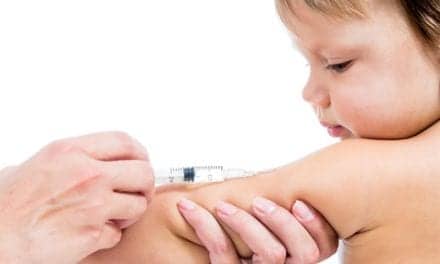Healthy pregnant women mount a vigorous immune response after receiving one dose of 2009 H1N1 influenza vaccine, according to initial results from an ongoing clinical trial sponsored by the National Institute of Allergy and Infectious Diseases (NIAID).
“For pregnant women, who are among the most vulnerable to serious health problems from 2009 H1N1 infection, these initial results are very reassuring,” said NIAID director Anthony S. Fauci, MD, in an announcement about the initial results. “The immune responses seen in these healthy pregnant women are comparable to those seen in healthy adults at the same time point after a single vaccination, and the vaccine has been well tolerated.”
The preliminary analysis of blood samples taken 21 days post-vaccination from a subgroup of 50 pregnant women participating in the trial showed the following:
– In 25 women who received a single 15-microgram dose of the vaccine, the H1N1 flu vaccine elicited an immune response likely to be protective in 92%, or 23 of 25, of these women.
– In 25 women who received a single 30-microgram dose of the vaccine, the H1N1 flu vaccine elicited an immune response likely to be protective in 96%, or 24 of 25, of these women.
All of the 120 volunteer participants are between 18 and 39 years of age and began the study in their second or third trimester (14 to 34 weeks) of pregnancy. At entry into the study, the participants were divided at random into two groups: half to receive two doses of a 15-microgram vaccine and the other half to receive two doses of a 30-microgram vaccine. The two injections of vaccine are spaced three weeks apart.
The study investigators and an independent panel of experts are monitoring safety in the study. To date, the vaccine appears to be well-tolerated, and no safety concerns related to the vaccine have arisen. This clinical trial is using a vaccine manufactured by Sanofi Pasteur in its plant in Swiftwater, Pa, in the same manner as the company’s injectable seasonal influenza vaccine.









